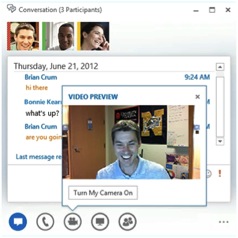
FEATURES
Online content is delivered to the learner through ADU Service’s SCORM compliant Learning Management System (LMS) which is comprised of six basic elements: E-Books, Class Sessions, Virtual Labs, Assignments, Assessments, Resources and Collaboration.
E-Books :
The e-learning "E-Books" is the backbone of the educational infrastructure. For each course within a program an E-Books section is created by the subject matter expert and it contains all useful information on the topic including graphs, media files etc. The E-Books also lead to the virtual labs. The E-Books led activities are monitored by the Learning Management System by keeping track of the learner's progress through a course.
Class Sessions :
Class sessions are organized based on the course syllabus published by the subject matter experts. While the E-books offers in-depth knowledge and can be used as a resource material for student's individual learning of the subject matter, class sessions are what the teacher does within the constraints of the instructional hours allocated within the syllabus document. They basically replicate the in-class lecture given by the teacher/instructor through a series of multimedia presentations.
Virtual Labs :
The virtual labs provide hands on learning experience in various courses of science, math, etc. Each lab experiment has a familiarization walk through for students before they perform the experiment. The student receives immediate feedback on the experiment results that they conducted and thus can continue until they get it right. In every lab there are also quiz questions that the student can answer to see how much they have learned from the experiments.
Assignments :
This is like "homework" that the instructor assigns to the students. The student can download this, answer and post this back for correction.
Quizzes :
This is an objective type of assessment that may be given at the end of each topic and subtopic. The student gets automatic feedback on their answers and in the case of a wrong answer the correct answer is also provided.
Assessments :
These are instructor created exams that test a student's knowledge at the course level. Assessments may be conducted in various ways including an online randomized assessment created by the instructor or a proctored assessment taken either online or at a nearby testing center.
Resources :
These are extra reference materials that the instructor uploads for students to enhance their knowledge about specific topics. References come in the form of downloadable PDF or Document files, or as external links.
Collaboration :
The collaboration feature on our LMS is hosted by Microsoft Lync. This feature allows instructors and students to communicate in real-time through instant messaging, video chatting, file sharing and screen sharing. Collaborations are instructor activate, meaning if a student wished to have a collaboration with an instructor, they must email the instructor first to set up a collaboration meeting.
